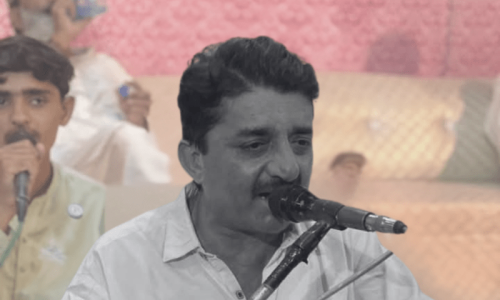TEHRAN: Reformist cleric Mohammad Khatami’s bid for the Iranian presidency will attract voters in large numbers, but victory is far from guaranteed amid major domestic and global upheaval, analysts said on Monday.
Khatami, president of Iran for two terms from 1997 to 2005, on Sunday declared his intention to run again in a fight that will pitch him against incumbent hardline president Mahmoud Ahmadinejad.
Analysts said the religious leader’s charisma and popularity among the youth of Iran would make for an exciting race, with the international community also likely to favour Khatami over Ahmadinejad’s confrontational rhetoric.
But Ahmadinejad is backed by supreme leader Ayatollah Ali Khamenei and for many he has transformed Iran into a top regional power, while Khatami failed during his tenure to follow through on bold promises for reform, they said.
“This time it would be difficult for Khatami to repeat what he did previously, because the domestic and global circumstances have changed,” said Mohammed Sadegh Al Hosseini, a well known Middle East expert.
“Even if (Barack) Obama’s coming to power may give a different impression, things on the ground have changed as the world these days has become more militarised with not much room for dialogue.”
Hosseini was referring to the new US president’s offer to open dialogue with Tehran over its controversial nuclear programme but his top officials have also said that Obama retains all options in dealing with the Islamic republic.
Since Ahmadinejad came to power in 2005, Tehran has been on a collision course with the West over its nuclear drive which Washington and other Western powers suspect is aimed at making atomic weapons.
Tehran denies the charge but has also strongly resisted calls to freeze uranium enrichment despite a raft of UN Security Council sanctions.
Iran has also been accused by the United States of fomenting unrest in Iraq and funding militant groups such as the Palestinian movement Hamas which rules Gaza and Lebanon’s movement Hezbollah.
And it was under Khatami’s rule that former US president George W. Bush declared Iran as part of an “axis of evil” along with Saddam Hussein’s Iraq and North Korea.
On Monday, the Iranian press played down Khatami’s announcement, with most newspapers running it merely as a single-column news-item without comment.
The 65-year-old mid-ranking leader has been a target of the hardline newspaper Kayhan in particular which has often accused him of being “soft towards expansionist policies of the West.”
“His candidacy definitely will heat up the race but during his previous term Iran witnessed lot of ups and downs,” said Gholam Reza Ghalandarain, managing director of the conservative Quds newspaper.
“During his term Iran did not witness stability as the team he chose was not fully committed to democracy and Velayat-i-Faqih (Guardianship of Jurisprudence),” he said, referring to the basic rules of the Islamic republic written by the father of the revolution Ayatollah Ruhollah Khomeini.
Under Khatami, Iran saw reasonable economic growth and also adopted several liberal initiatives that earned him the “reformist” tag, much to the dismay of hardliners.
Although many social and political restrictions remain, women today enjoy a greater role in political life due to reforms he launched, including appointing the first woman to a cabinet post since the 1979 revolution.
He also gave a greater voice to Iran’s youth, with organisations that continue to function.
But Ghalandarian said Khatami never helped Iran “shine internationally.”
“We never became the undisputed regional power under his rule,” he said.
“Overall I personally would not give him a pass mark for his eight years as president, but ultimately it is the people who decide.”
Ahmadinejad has been touting Iran as the new emerging regional power, especially after the launch this month of its first home-built satellite, a move that further unnerved the West.
However, Khatami’s knowledge of Western political thought and his reformist tag makes him more acceptable internationally than Ahmadinejad.
“On the international scene he has better status than his rivals,” said political analyst and professor Mohammad Soltanifar. “His way of dialogue is different and more acceptable internationally.”—AFP















































Dear visitor, the comments section is undergoing an overhaul and will return soon.